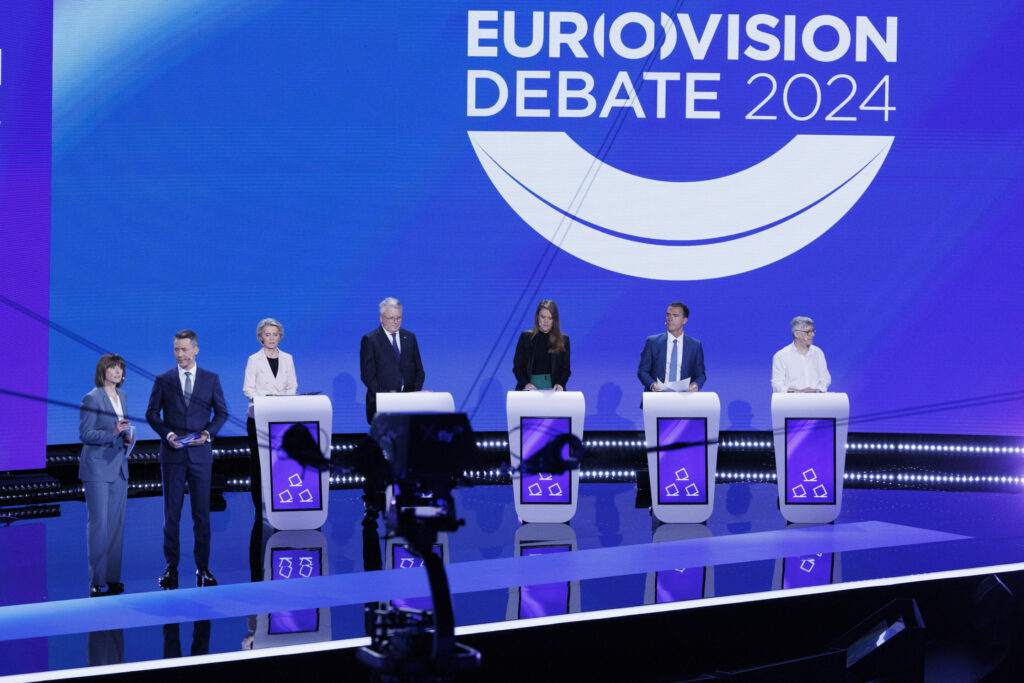Although physically absent from the room, the far-right was the centre of attention at the "Eurovision" debate yesterday between politicians vying for the top job of European Commission President.
Lead candidates (Spitzenkandidaten) from five of the seven main European political groups took to the plinth at the Eurovision debate, the last election debate before voters across the EU start filling ballot boxes in less than two weeks’ time.
Viewers who saw the Eurovision-branded event title and expected an impromptu sing-off between candidates may have been disappointed – although no doubt the European Broadcasting Union (EBU) which organises both events was relieved yesterday’s debate sparked less controversy than the song contest in Sweden earlier this month.
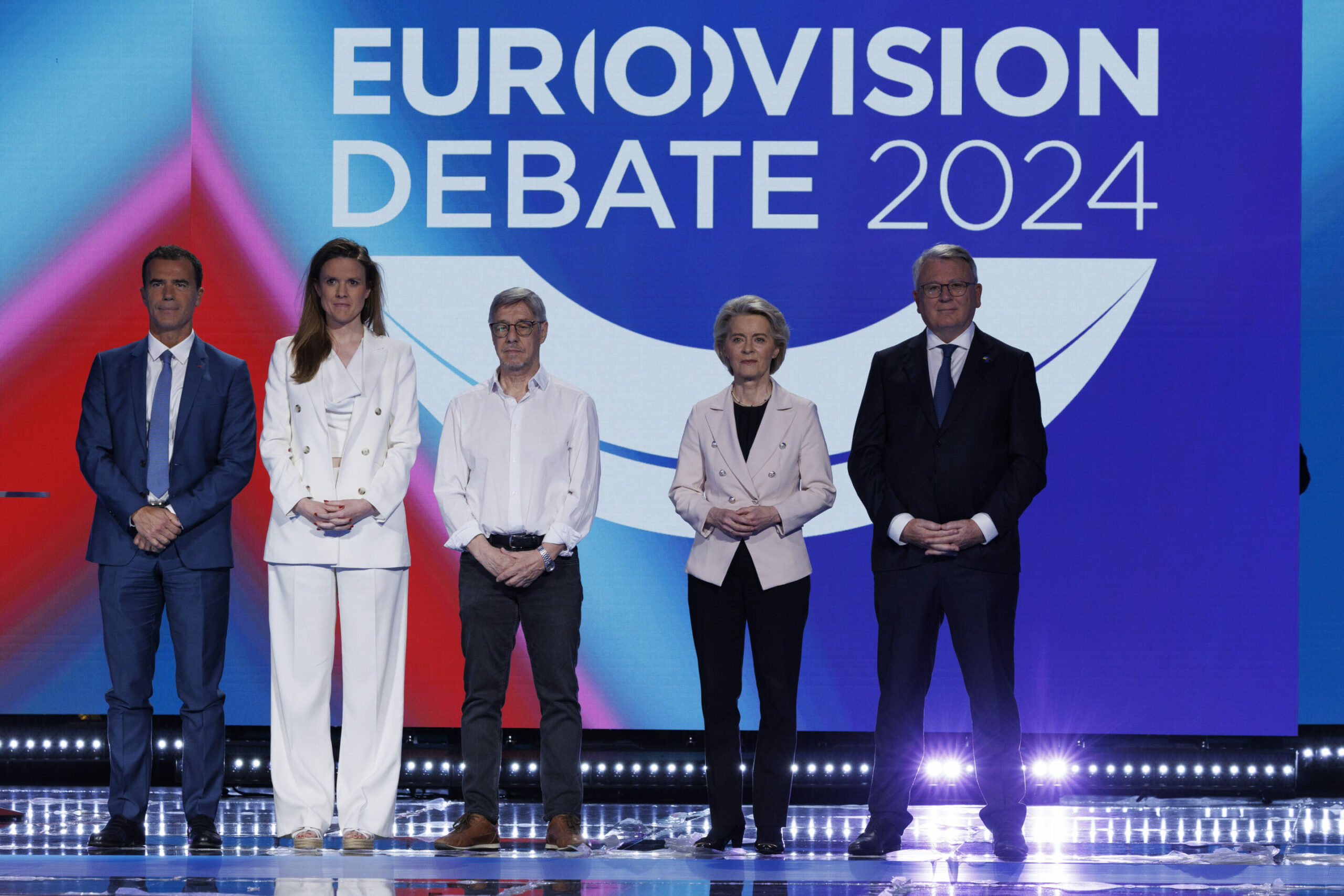
Italian MEP Sandro Gozi, German MEP Terry Reintke, Austrian MEP Walter Baier, European Commission president Ursula Von der Leyen and EU Commissioner for Jobs and Social Rights Nicolas Schmit pose for photographers. Credit: Belga
The five lead candidates in yesterday’s line-up were current Commission President Ursula Von der Leyen of the European People’s Party (EPP), Walter Baier for the European Left, Sandro Gozi of Renew Europe Now, Terry Reintke leading for the European Greens and Nicholas Schmidt representing the Party of European Socialists.
Von der Leyen is the clear front runner to take up the role for a second term, as the German’s centre right EPP party is leading in the polls.
She was the only candidate to snub journalists on her way into the debate, as her rivals stopped to field questions at a cluster of microphones on the red carpet.
Notably missing from the line-up were representatives from the two far-right European parties, the European Conservatives and Reformists (ECR) and the Identity and Democracy (ID). Having chosen not to participate in the lead candidate system, neither party were able to take part in the debate.
Anders Vistisen, who is at the front of ID’s European election campaign, was critical on X (formerly known as Twitter) yesterday, calling the event a “gathering of the EU’s elite for a debate that does not represent the people of Europe”.
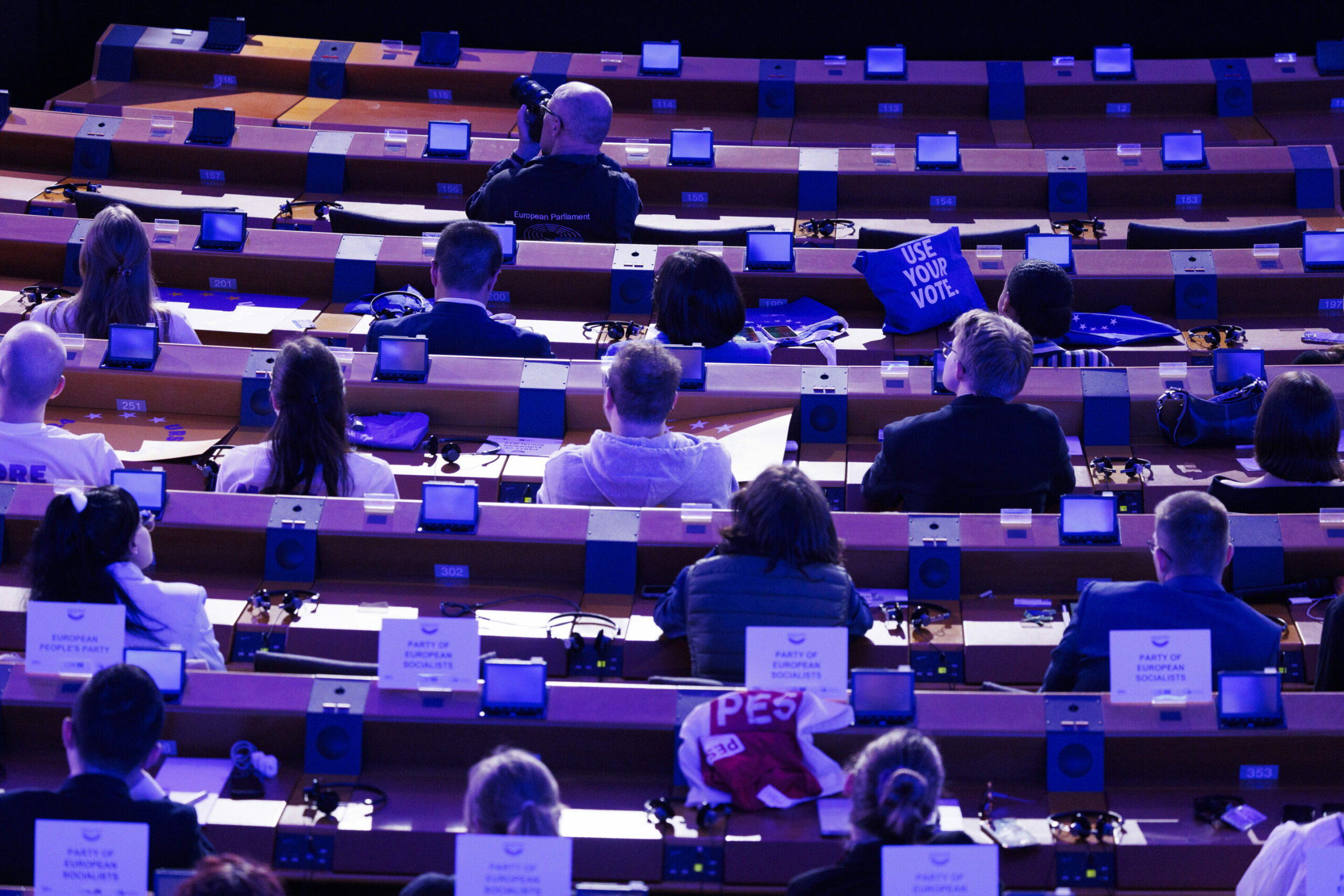
Credit: Belga / Nicolas Maeterlinck
However as the conversation touched on key election topics from economy and defence to climate and migration, looming large was the question of how to deal with a far-right faction that is expected to grow in numbers after June’s election.
Pressed on her statements last month that her EPP group would be open to a deal with the ECR, Ursula Von der Leyen reiterated her three red line principles for which MEPs she would work with in the next term.
"The first is pro-Europe. The second is pro-Ukraine, that is anti-Putin. And the third is indeed pro-rule-of-law," she said.
Von der Leyen stopped short of clarifying which right wing European political groups her EPP party would be willing to work with, noting that she wanted to see how groups formed once the election dust settles.
She did emphatically rule out the French National Rally (RN), German Alternative for Germany (AfD) and Polish Confederation (Konfederacja) parties as "friends of Putin" that "want to destroy Europe" – but noted that she has been working "very well" with Italian Prime Minister Giorgia Meloni, president of the ECR, adding that Meloni aligns with her three red line principles.
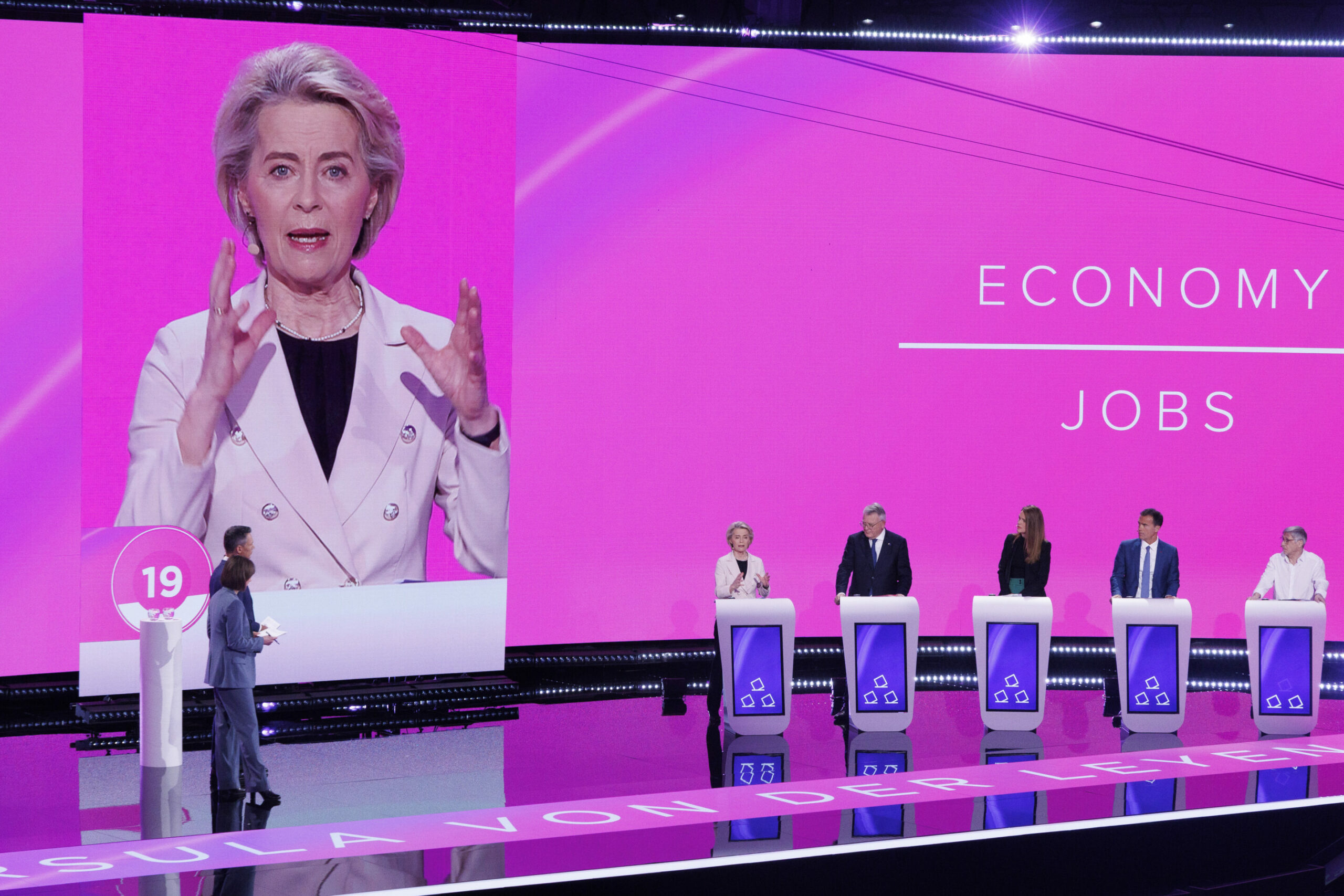
Ursula Von der Leyen speaking during the Eurovision debate. Credit: Belga
In her appeal to voters, Von der Leyen said she is "ready to build a majority for a strong Europe, because the centre must hold", putting emphasis on democracy, prosperity and security.
The Left calls for people and planet "before profit"
Austrian Walter Baier of Europe’s The Left group appealed to voters with "high rent and precarious jobs", calling for an EU directive to introduce rent caps and forbid evictions from primary homes.

European Left lead candidate Walter Baier. Credit: Belga/ Phillipe Buissin
"We want to put people before profit, put the planet before profit. And if you join this, I call you to vote for the left," the European Left candidate said, also calling for spending on the ecological emergency to be prioritised over defence.
He called for the EU to play a greater diplomatic role in bringing an end to Russia's invasion of Ukraine, as well as for sanctions to be put in place against Israel over ongoing conflict in Gaza.
Baier added that the core problem driving a rise in popularity of the far-right in Europe is "the social question".
"Unless we give dignified lives, decent housing and secure jobs to the people, we will not be able to defeat the far-right in Europe," he said.
Green investment
Unsurprisingly, German Greens/EFA candidate Terry Reintke was strong on climate investment, warning: "the biggest mistake that we could do right now is to fall back into times of austerity, we need to invest into our future."
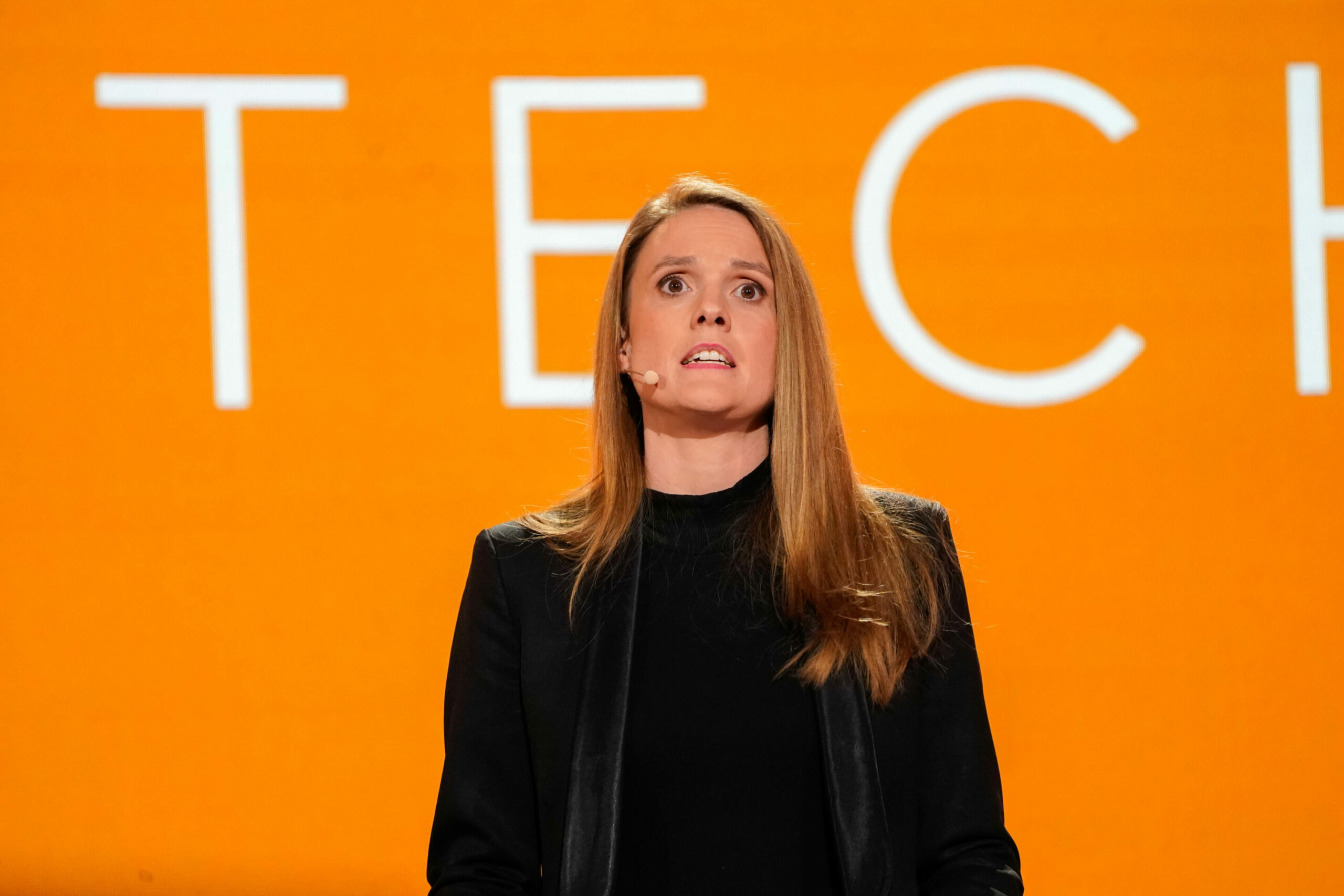
Green lead candidate Terry Reintke. Credit: European Parliament/ Philippe Buissin
She called for investment in common European infrastructure to support the transition, a new green industrial deal to support companies to seize green business opportunities, as well as reform of EU agricultural policy to greater support the livelihoods of farmers.
Noting that the far-right is the "biggest threat" to EU security currently, Reintke also called for a change to how defence decisions are made to stop far-right actors such as Hungarian Prime Minister Viktor Orbán from blocking proposals.
"We have to end unanimity in the Council when it comes to foreign and security policy. We cannot give people like Viktor Orban a veto right on our security. So let us end unanimity in the Council," she said.
Decent wages and good jobs
Improving the daily lives of European citizens was the key message from European Socialist Party candidate and Luxembourger Nicolas Schmidt, who called for "decent wages, good working conditions and quality jobs".

European Socialists lead candidate Nicolas Shmidt. Credit: European Parliament/ Luis Millan
"Talking about the economy and talking about socialism is talking about two sides of the same coin," he said, emphasising the need to invest in upskilling workers to cater to a rapidly evolving jobs market.
On the far-right, Shmidt was firm that his European party will only work with "democratic forces" in the next term, ruling out ECR and ID and criticising Von der Leyen’s EPP for not doing the same.
Don't stop (the EU) now
The closest the debate got to a Europop sing-off came from Renew lead candidate Sandro Gozi, as the Italian managed to work a Queen lyric into a discussion about the rule of law and the far-right.
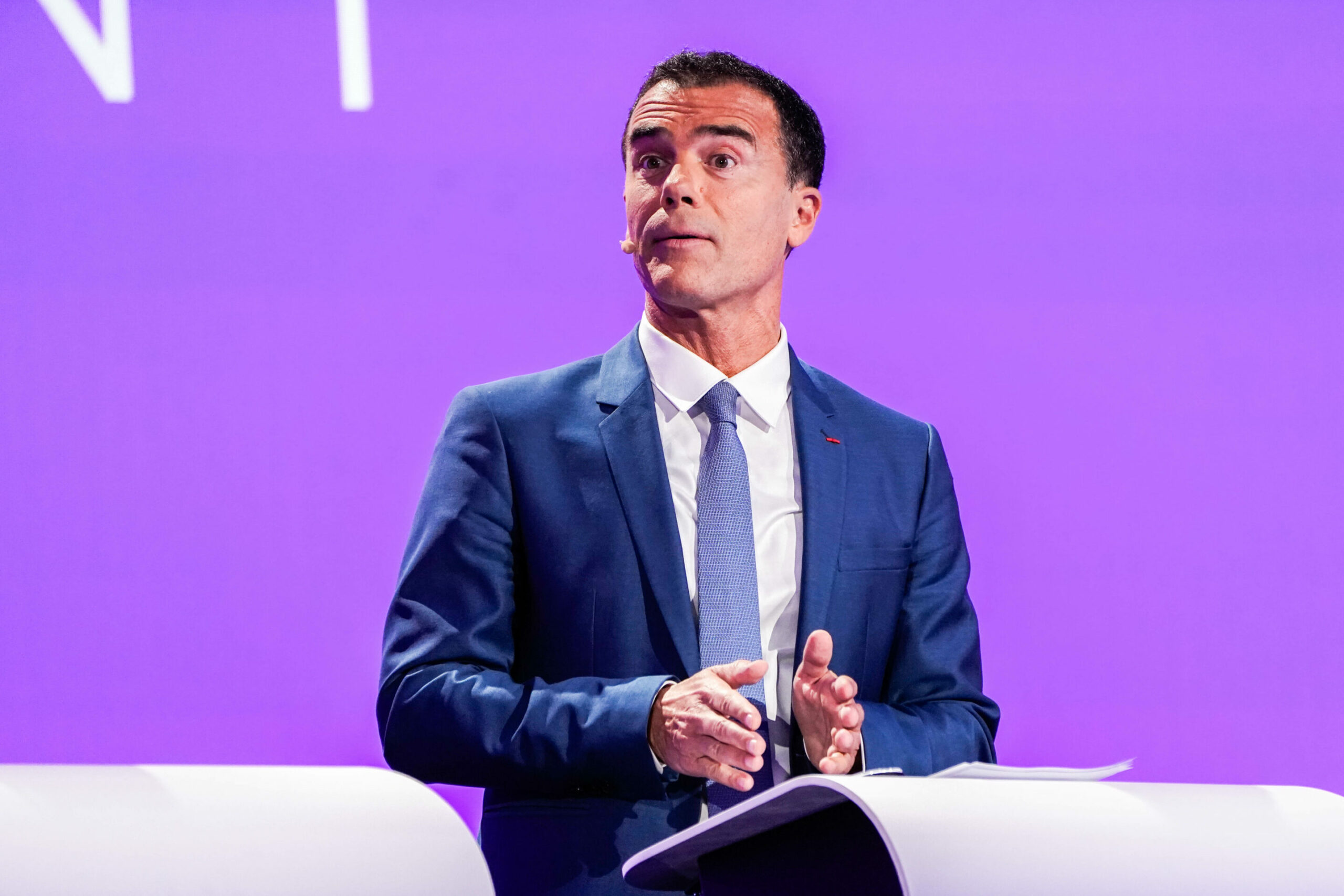
Renew lead candidate Sandro Gozi. Credit: European Parliament/ Phillipe Buissin
"Don’t stop me now. You know the famous song by Queen? Don’t stop the EU now. It's time for a deep and bold reform, we must revise a treaty, to unify the continent… because we must be much more effective in protecting the rule of law. That's our best answer to the extreme right," he said.
He appealed to voters to "save Europe", calling for a major boost to defence spending.
"Brutal violence and aggressive empire are back, and because Putin is not stopping here. This is why we must win in Ukraine and this is why we need a real European power. Either you’re powerful to sit at the table and defend your interests, or you’ll find yourself on the menu decided in Beijing and Washington, and that is not a very nice perspective," he said.
Despite coming out against the far-right, Gozi came under fire for Renew’s potential alliances, as the Dutch People’s Party for Freedom and Democracy (VVD) – which is part of the Renew group – is provisionally set to enter into a coalition with the far-right Party for Freedom (PVV) in the Netherlands.
"I think this a major mistake if they do it, but there is no government in the Netherlands yet," he said, adding that VVD’s membership of Renew is a matter to be debated by the group on 10th June, after the elections.

